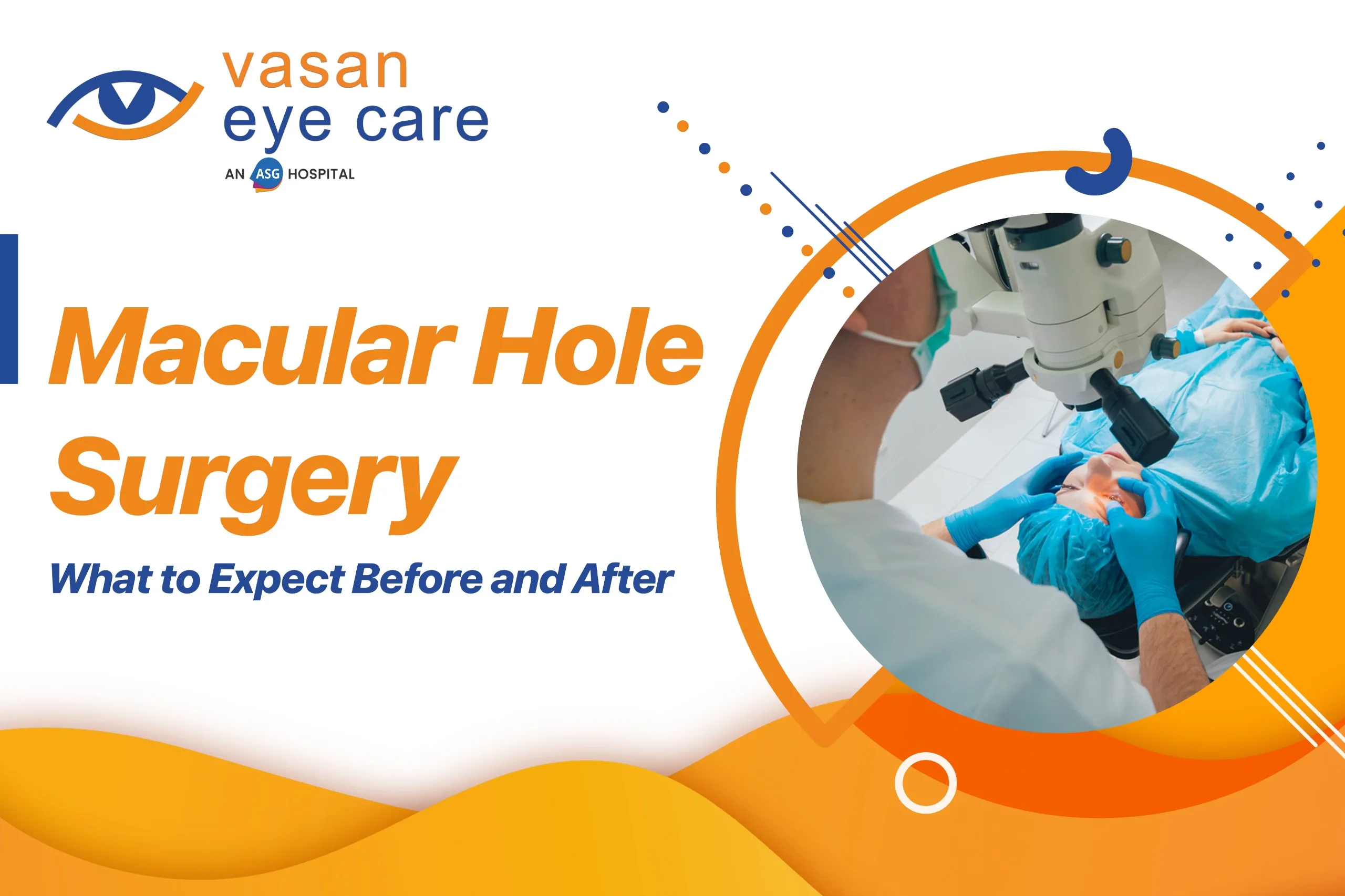The macula is a part of the retina at the back of the eye, responsible for central vision that enables activities like reading small text and recognizing faces, and a macular hole is a small defect in the macula that can cause blurry vision, affecting everyday tasks like reading or driving. If you have a macular hole, the most common procedure to restore your vision and improve your quality of life is macular hole surgery.
Here, we will walk you through some details of the condition and the surgery’s pre- and post-operative care: what to expect so you are fully prepared.
What is a Macular Hole?
A macular hole occurs when there is a small tear or break in the macula, often caused by age-related changes in the eye. This hole distorts central vision, causing blurriness or even a dark spot in the center of your field of vision. Macular holes are more common in people over 60 but can affect individuals younger than that as well. If left untreated, a macular hole may continue to affect vision, making it difficult to perform daily activities like reading or driving.
What is Macular Hole Surgery?
Macular hole surgery is usually performed when the hole is large enough to affect your vision. Surgery aims to repair the hole by removing the vitreous (a term for a clear jelly-like substance inside the eye) and taking off the forces that created traction on the retina. The procedure is carried out under local anesthesia and most patients can go home on the same day.
Pre-Surgery: Basics you need to know
- Consultation and Pre-Surgery Exams:
An eye doctor performs a comprehensive eye exam to assess the size and location of the macular hole. This examination typically includes a detailed retinal assessment using advanced imaging techniques, such as optical coherence tomography (OCT), to visualize the hole. In case you need surgery, your doctor will explain the procedure to you and address any risks or concerns you may have.
- Preparing for Surgery:
Before surgery, you’ll be given fasting instructions (no eating or drinking for a specified period) and what medications you will not be able to take. You must inform your doctor if you take any prescription drugs or over-the-counter drugs.
- Surgery for Macular Hole
Generally, the macular hole surgery takes 1 to 2 hours and is performed on an outpatient basis. These are the steps involved:
Anesthesia: Local anesthetic is used for the procedure, which means you will be awake but won’t feel pain. In addition, some people may get a sedative to help them through the procedure.
Vitrectomy: The surgeon will create an incision in your eye to remove the vitreous gel that may be pulling on the retina and causing the hole.
Macular Hole Closure: A special gas bubble may be injected into your eye to facilitate the closure of the hole. The bubble applies pressure to the macula and promotes healing.
Post-operative Care: After the surgery, you will be given instructions to be followed to prevent infection and recover well. This might include eye drops and, possibly, antibiotics.
Post Surgery: What to expect
1. Visual Recovery: The recovery varies from person to person. Initially, you could experience blurred vision or distorted images, due to the gas bubble used for intervention. The gas will gradually be absorbed and your vision will improve as the macula heals.
2. Positioning: Following surgery, positioning is one of the most important aspects of healing. You may be asked to keep your head in a certain position (facing down) for a few days to keep the gas bubble in place to facilitate healing effectively.
3. Follow-up Appointments: You should expect several follow-up appointments to assess how well your eye is healing. The doctor will examine your macula for healing, evaluate the vision, and check if the hole is closing properly.
4. Eventuality of Possible Side Effects and Risks: Like any surgical procedure, surgery for a macular hole carries risks such as infection, bleeding, or discomfort associated with the gas bubble. Patients might experience an increase of pressure in their eye for some time, which is very rare, or their macular hole might come back. In that case, the doctor will discuss the potential implications with you in detail.
5. Vision Improvement: Surgery for a macular hole offers the best chance for improving vision, but the extent of recovery can vary among patients. While some individuals may experience significant improvement, others may struggle to notice any changes for a few days. It’s important to manage your expectations and be patient, as healing can take time.
Conclusion
Macular hole surgery could significantly improve your vision and quality of life if you have been afflicted with the disease. With some patience and strict adherence to post-operative instructions, you grant yourself the possibility of a positive result over time. At VASAN Eye Care Hospital, we are committed to providing you with comprehensive care, expert advice, and the best possible outcomes for your vision. If you suspect you may have a macular hole or are considering surgery, we encourage you to visit our specialists as soon as possible and receive an initial consultation. Your vision is important to us, and we strive to help you regain it.

